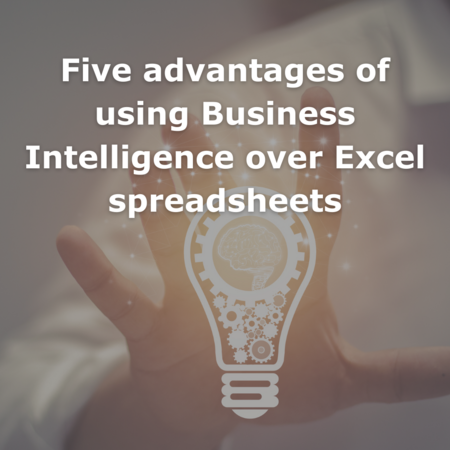Whilst Excel has long been a popular tool for data analysis and reporting, there are several advantages to using Business Intelligence (BI) instead. Here are five reasons why going with BI could be the better choice.
1. Speed and Efficiency
BI tools are designed to handle large volumes of data quickly and efficiently, whereas Excel can become slow and unwieldy when working with complex data sets, and navigation can be tricky. BI tools offer faster and more efficient data processing, which translates into quicker and more accurate decision-making.
2. Data Integration
BI tools can build relationships between data from multiple sources and formats, which allows for a more comprehensive view of your data. Excel, on the other hand, is limited to unrelated data tables, which can make it difficult to see the big picture.

BI at work

Excel at work
3. Visualisation
BI tools offer a wide range of visualisations, including dashboards, charts, and graphs, which can make data easier to understand and analyse. Excel can produce similar visualisations, but they require far more manual effort and expertise to create and maintain.
4. Automation
BI tools offer a range of automation features that can save time and reduce errors. Excel also has some automation features, but they are generally more limited and require more manual setup, whereas BI can handle real-time data and automated data refreshes.
5. Collaboration
BI tools are designed for collaboration, with features that allow multiple users to access and work on the same data set. Excel, on the other hand, can be difficult to collaborate on, especially when dealing with large or complex data sets.
Overall and on balance, whilst Excel is a useful tool for basic data analysis and reporting, BI offers a more efficient, integrated, and collaborative approach to data analysis, making it a better choice for schools that need to process and analyse large amounts of data on a regular basis.



